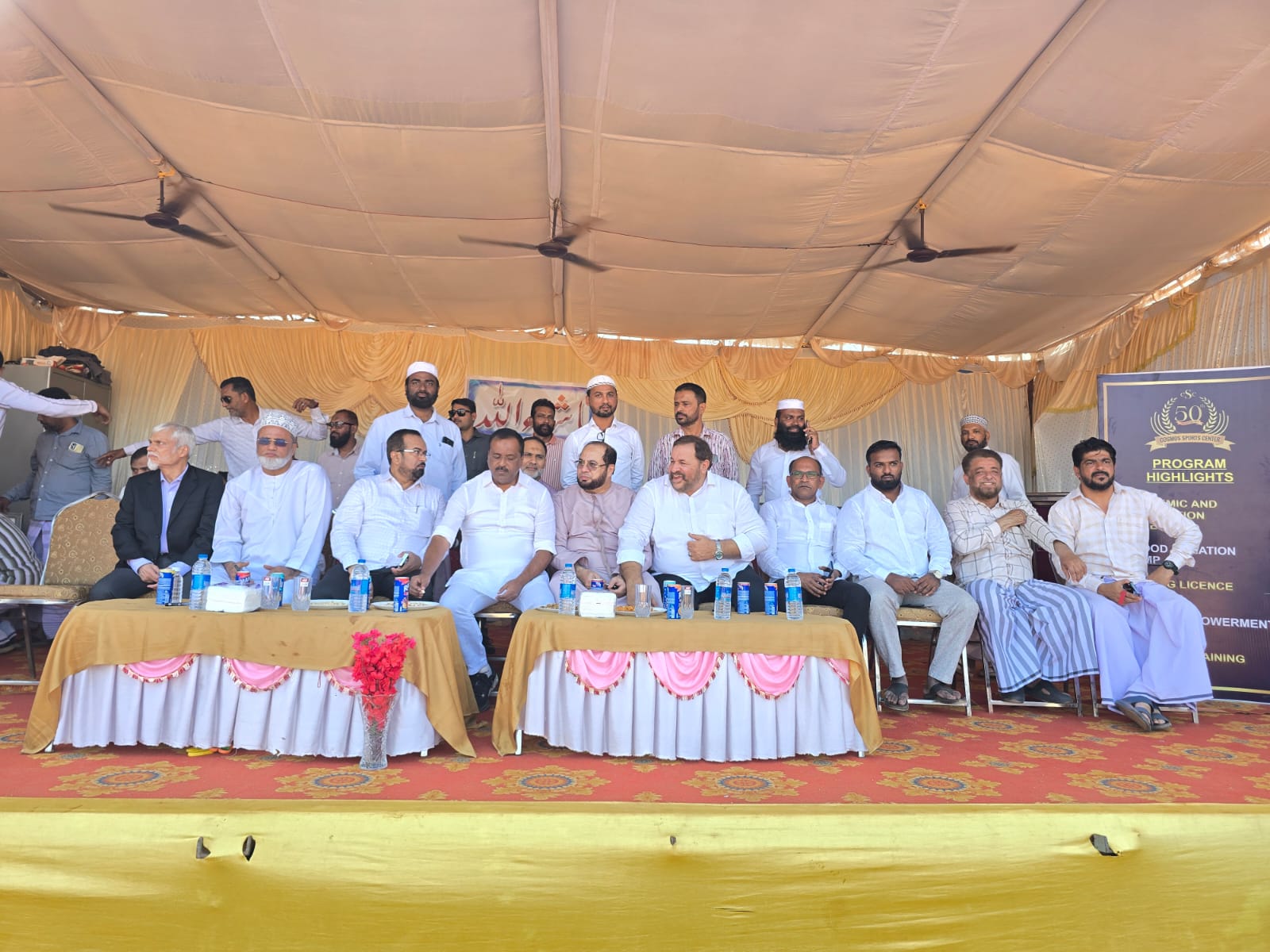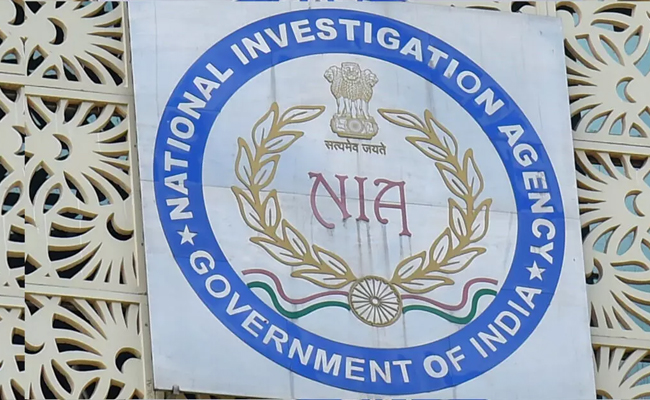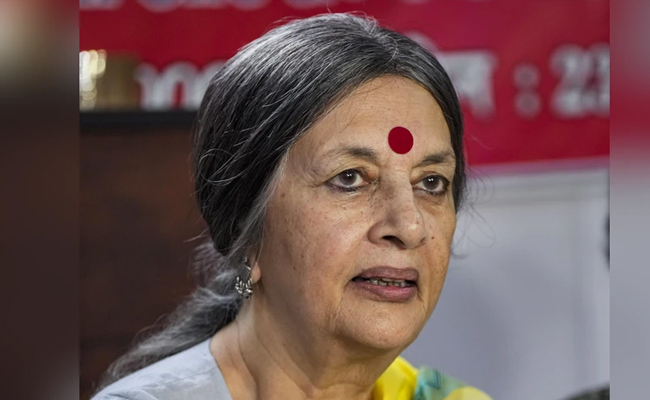Paris:France on Thursday became the third country in Europe after the UK and Italy to reach the unwanted milestone of 100,000 COVID-19-related deaths as new infections and deaths surged due to virus variants.
The country of 67 million is the eighth nation in the world to reach the mark after a year of overwhelmed hospitals, on-and-off coronavirus lockdowns and enormous personal losses that have left families nationwide grieving the pandemic's impact.
The moment prompted a message of solidarity from French President Emmanuel Macron.
Since the start of the pandemic, 100,000 French women and men have succumbed to the virus. We all have a thought for their families, their loved ones, for the children who have lost a parent or a grandparent, the bereaved siblings, the broken friendships, Macron said on Twitter. We will not forget a face, a name, he added.
France added 300 new deaths Thursday to the previous day's tally of 99,777, bringing the total to 100,077 deaths.
Lionel Petitpas, president of the group Victims of COVID-19 told The Associated Press that the number was an important threshold.
After months of people getting accustomed to the virus, the figure is piercing a lot of minds. It is a figure we thought would never be reached, he said.
Petitpas, who lost his wife Joelle on March 29 last year from the virus, said families of victims "want the government to make a collective gesture to recognize our collective loss.
Macron told Le Parisien newspaper he thinks about all of the people who died in the pandemic and their families.
The pandemic was so cruel to individuals who sometimes were not able to accompany, during the last moments and in death, a father, a mother, a loved one, a friend, Macron said. Yet the crisis also shows the ability of the French people to unite."'
French government spokesperson Gabriel Attal suggested it is too soon to set a specific date to honor those who died as France is now fighting another rapid rise in confirmed cases.
There will be an homage for sure, a national mourning for the victims of COVID-19, Attal said Wednesday. That time will come. ... today, we throw all our forces in the battle against the epidemic.
Experts say the 100,000 mark is an underestimate by thousands. An analysis of death certificates shows that some COVID-19 cases were not reported or patients were not tested when people died at home, or in psychiatric units or chronic care facilities.
Petitpas started a Facebook group last year for families of victims to share memories of their loved ones. Nearly every day, new testimonies appear.
My wife, like so many others, was just put in a body bag," he recalled. "It was like a luxury garbage bag. And then she was put in a coffin and sent to cremation. He was not allowed to see her.
Petitpas said despite a decree in January allowing people in France to see their deceased loved ones, many places still aren't allowing it.
All these people who left us (are) like people with the plague, without human dignity, with nothing at all, he said.
Celia Prioux-Schwab, a social services worker, lost her 82-year-old grandmother in January, four days after she was sent home from the Reims hospital even though her family had no home-care option and she still had COVID-19.
She is now pushing for a change in French law to guarantee the right of families to visit hospitalized patients even during a pandemic, to offer support, or even just to say goodbye."
Corine Maysounabe, a journalist in western France, has been involved in a group advising officials on a future protocols for deaths during pandemics. She lost her 88-year-old father last year to the virus. She described the enormous trauma of mourning rites being trampled on and bodies treated at the level of objects.
When you're told your father was put in a bag and covered in bleach: imagine the image you get in your head, she said.
Maysounabe feels families and victims are forgotten still today. We have gotten accustomed to 300, 400 deaths a day.
Since Macron declared war on the virus while announcing the country's first lockdown on March 17, 2020, the French have faced domestic and international travel restrictions that have weighed heavily on everyday life.
France plunged into a third, partial lockdown at the beginning of April, as new infections were surging and hospitals getting close to saturation. The total number of COVID-19 patients in intensive care in France surged past 5,900 this week. Measures include closing schools, a domestic travel ban and shutting most nonessential shops.
An overnight nationwide curfew has been in place since mid-December, and all France's restaurants, bars, gyms, cinemas and museums have been closed since October.
Schools are set to gradually reopen starting April 26. The government is anticipating that other restrictions will start being lifted around mid-May.
Macron was meeting Thursday with officials to get the nation prepared for the gradual reopening. Authorities expects that 20 million people, about 38% of France's adult population, will have received at least one vaccine shot by that time up from 11 million now.
France has reported the most confirmed coronavirus infections in Europe, more than 5.2 million.
Let the Truth be known. If you read VB and like VB, please be a VB Supporter and Help us deliver the Truth to one and all.
Mumbai (PTI): In view of Argentine superstar footballer Lionel Messi's visit to Mumbai on Sunday, the city police are implementing stringent security measures, like not allowing water bottles, metals, coins inside the stadiums and setting up watchtowers to keep an eye on the crowd, officials said.
The police also said taking extra care to avoid any stampede-like situation and to prevent recurrence of the chaotic situation that unfolded in Kolkata during Messi's visit on Saturday as thousands of fans protested inside the Salt Lake stadium here after failing to catch a clear glimpse of the football icon despite paying hefty sums for tickets.
Messi is expected to be present at the Cricket Club of India (Brabourne Stadium) in Mumbai on Sunday for a Padel GOAT Cup event followed by attending a celebrity football match. He is expected to proceed to the Wankhede Stadium for the GOAT India Tour main event around 5 pm.
"In view of Lionel Messi's visit to Mumbai, the police are geared up and have put in place a high level of security arrangements in and around the stadiums located in south Mumbai. Considering the chaos that prevailed in Kolkata and the security breach, we have deployed World Cup-level security arrangements at Brabourne and Wankhede stadiums," an official said.
Expecting heavy crowd near the stadiums during Messi's visit, the city police force has deployed more than 2,000 of its personnel near and around both the venues, he said.
As the Mumbai police have the experience of security 'bandobast' during the victory parade of ICC World Cup-winning Indian team and World Cup final match at the Wankhede Stadium, in which over one lakh cricket fans had gathered, we are prepared to handle a large crowd of fans, he said.
"We are trying to avoid the errors that occurred in the past," the official said.
There is no place to sneak inside the stadiums in Mumbai like the Kolkata stadium, according to him.
The police are also asking the organisers to provide all the required facilities to the fans inside the stadium, so that there will be no chaos, he said, adding the spectators have purchased tickets in the range of Rs 5,000 to 25,000. After paying so much of amount, any spectator expects proper services, while enjoying the event, he said.
The police are expecting 33,000 spectators at the Wankhede Stadium and over 4,000 at Brabourne Stadium. Besides this, more than 30,000 people are expected outside and around the stadiums just to have a glimpse of the football sensation, he said.
The organisers responsible for Messi's India visit recently came to Mumbai to discuss security arrangements. During the meeting, the Mumbai police asked them not to take the event lightly, according to the official.
After those requirements were fulfilled, the final security deployment was chalked out, he said.
Police has the standard procedure of the security arrangements inside the Wankhede Stadium, where people are barred from taking water bottles, metals objects, coins. Police are setting up watch towers near the stadiums and there will be traffic diversions, so that there is maximum space available to stand, according to the official.
Police are also appealing to the spectators to use public transport service for commuting and avoid personal vehicles to reach south Mumbai.
To avoid any stampede-like situation, police are also taking precautionary measures and will stop the fans some distance ahead of the stadium and public announcement systems will be used to guide the crowd. Barricades will be placed at various places to manage the crowd.
In case the crowd swells up beyond expectation, the police will divert people to other grounds and preparations in this regard underway, he said.
Additional police force has been deployed in south Mumbai to tackle any kind of situation, he said.





